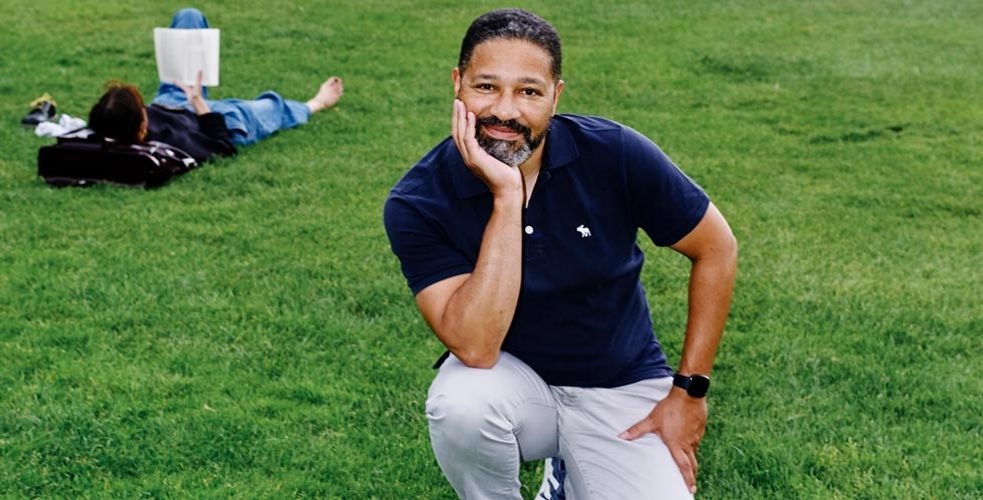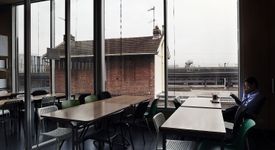"I took part in the launch of many rockets" from French Guiana to rue Firmin-Gillot, the memories of Olivier Attia, ex-Teleperformance

Teleperformance's growth has been fuelled by a large number of acquisitions, many of them well-chosen, well-executed and subsequently integrated. In the baggage of these 'digested' companies were brilliant employees, those eager to learn, or both. Computer scientist Olivier Attia is one of a large family of technical managers who took advantage of the opportunities created by the growth and intense technological change in the BPO sector. BVRP, TechCity, Teleperformance. What a career path for a young DUT graduate returning from French Guiana!

How did you come to work for Teleperformance and why?
Olivier Attia: I hadn't decided on a career in the sector or in the company. The company I was working for had been acquired by another company, which then became a subsidiary of TP. After obtaining my DUT, I went to do my military service in French Guiana. I had a passion for computers, so I went on to do a DU in IT and started as an after-sales technician at BVRP: it was my first job and, in my mind, it was mainly intended to be my first contact with the world of work. I had no intention of making a career out of it! At that time, the consumer Internet was just starting up (Wanadoo at France Telecom). It was a great adventure, very formative and extremely rich from both an intellectual and social point of view.
We discovered that we had to provide support, at a time when modems were making a lot of noise and most of the time nothing was working. So calls came in from all over the place, and when there were server problems, we even had to handle a lot of calls during which we simply said: "It's not working". BVRP was operating in this world, and I stayed for five years, before TechCity took over BVRP's Services branch. I still draw on this past experience today: a large part of my future development will be in call-centre services. I may work in operations support, but I know what an agent's job is and what it's like to have someone on the line in distress because their product or service isn't working. So I'm going to move from Pantin, where TechCity is based, to rue Firmin-Gillot.
Georges-Eric Lagrange, aka GEL, CEO of TechCity, and his team will be spreading throughout the Group.
OA: Indeed. With him and the people he recruited, I discovered the tremendous effectiveness of a team made up of someone who has a vision - and knows how to surround himself with people - and managers who put it into practice, like Jean-Paul Delquigny and Laurent Mimault, for example. When I arrived on rue Firmin-Gillot, a large number of CIOs and IT people from the subsidiaries and BUs were together. Some of them were about to leave for other horizons. Others will be involved in implementing the new requirements laid down by the Group. I've had the opportunity to work alongside a number of CIOs, including Laurent Mimault, Dominique Rousseau, Frédéric Pouhet and Thierry Schoone, as well as working with people from EMEA such as Norbert Szymkoviak. I also worked briefly with the CIO Worldwide at the time, Lyle Hardy.
You may not realise it, but the company had created and devised a whole host of tools to manage calls, their distribution, statistics and customer knowledge, because for a long time we had a culture of creating our own tools. There came a time when we had to migrate to common, unique tools. I remember, for example, the arrival of Lyle Hardy, the Group's IT Director, who had created TP Client, a sort of in-house CRM tool. We had to decide whether or not it was worth rolling it out everywhere. It is with some of these tools that certain operations are still carried out. Of course, when these mergers took place, positions were redundant and there was some concern, but at the same time opportunities were opening up that we had to seize and go after. It was a real springboard for a lot of people who were able to grow within the company, with it. This situation created paths that were not necessarily well trodden, but that were rich in new opportunities. For the bold and the hard-working, it was ideal.
Today, when I'm in a pre-sales position (at NICE), when I say who I am as an introduction to my presentations and mention my time at Teleperformance, it's a real marker. And as my job is international, and I talk to people in France, but also in Belgium, the Netherlands, the UK, Germany and the USA, the Teleperformance reference speaks to everyone.

What unique things did you learn there, looking back?
OA: The learning was multi-dimensional: I developed my IT and project management skills. I learnt how to manage and deal with teams of all nationalities. Above all, I became an expert in launching rockets! In the IT Department, I had the opportunity to work on pre-sales with the sales people, before the projects were signed. Then I had to work on the technical implementation of the projects, to make sure that the IT system was effective and met expectations. Each project was a bit like launching a rocket: the preparation phase, the day of the launch, the countdown to the opening of the flows. And finally, listening to the results of all these efforts: the ringing of calls and the hubbub of conversations.
The management of 'crisis' situations is probably one of the other marks on your knife at TP: when you receive an urgent request to increase the load in order to manage a crisis situation, that almost noisy effervescence which translates into everyone making sure that everything works as quickly as possible and in the best possible conditions.
If we add the obsession with monitoring margins, I'd say that the company is developing a performance culture and forcing us to work on a complex equation, a delicate balance: satisfying the brand, its customers or prospects, while maintaining a viable economic equilibrium. At the same time, we have to ensure that our employees are comfortable at all times, in an increasingly stressful and complex environment.
So why did you leave the company?
OA: I left in 2016, and it was a very difficult decision: I was very attached to my job at Teleperformance and I loved it. But I had reached a crossroads in my career. I needed to look elsewhere, while remaining in the world of call centres and software, in a major global company. That's what I found at Nice.
What do they have in common?
OA: The organisation to deliver on a large scale (worldwide): resources, processes, determination and strategy.
If you had to pick out three key moments in your career with the company, what would they be?
OA: The integration of TechCity into Teleperformance and the fact that all the CIOs and IT departments came together in one place (Firmin-Gillot), at a time when the social context of the company in France was not the easiest because of the mergers. I also remember pizza lunches: the IT team, general services and a few people from production would get together in the basement to rethink the world and the company's strategy! Later, the move to Asnières Sur Seine gave us a new impetus. Finally, my collaboration with Thierry Schoone. He's one of the people who forced me to rethink the way I do my job, to rethink it.
What expression did you often hear at the time?
OA: We used to talk a lot about P/L, safety margins and PCI/DSS*, but sometimes we liked to illustrate the incompressibility of deadlines with the following expression: a woman can make a baby in nine months, but nine women won't make a baby in a month
Did you end up having fun at TP?
OA: Yes, a lot and I was stimulated. I remember a close-knit team, like a second family. We worked together, we ate together, we had fun together, we lived together! This idea of a book made up of the memories of a few alumni is a very good initiative. We often only hear from those who are disappointed or dissatisfied, but it's also important to hear from the many others who had a great time there. When I went there, I was thirty-seven years old. I stayed for six years. As in many other professions, you can either choose to work without motivation simply to pay the bills, or you can always try to outdo yourself and get the best out of it. Opportunities arise in the second option, rarely in the first.
Olivier's brief career path
2016 - 2023 NICE CX one. Senior Solutions Engineer
2014 - 2016 Teleperformance. IT delivery & Presales manager
2010 - 2014 Teleperformance. IT Project Director
2001 - 2002 TechCity Solutions. Project Manager / Web Developer for operational solutions
2000 - 2001 BVRP Services. Project Manager
1999 - 2000 BVRP Services Service Manager: AT (AT implementation, operational manager, delegation).
1996 - 1997 BVRP Software. Technical Expert N2
1996 BVRP Software After Sales Technician (early days of Wanadoo)







